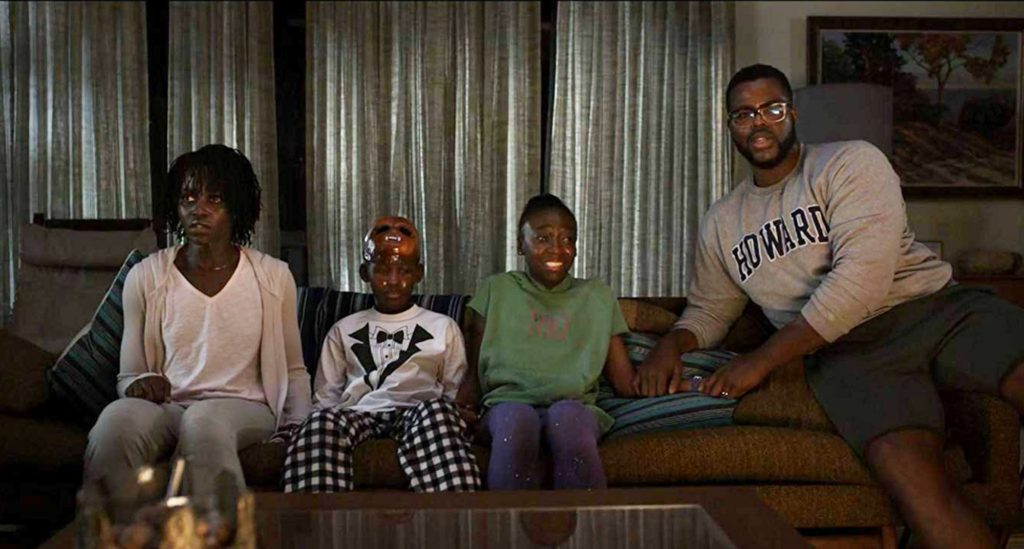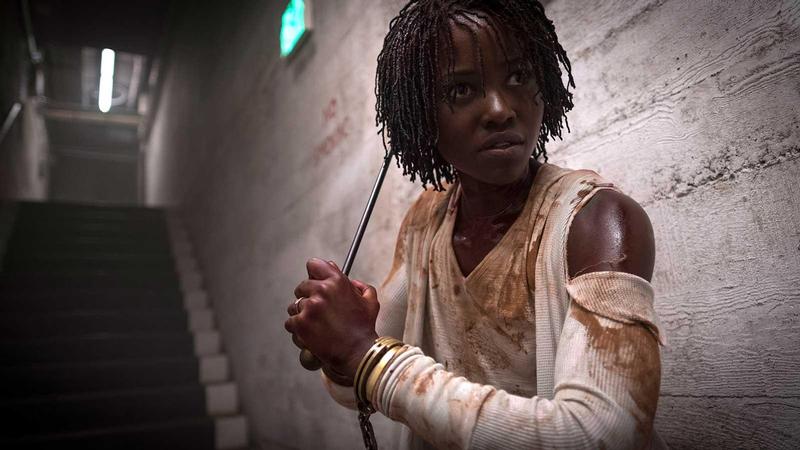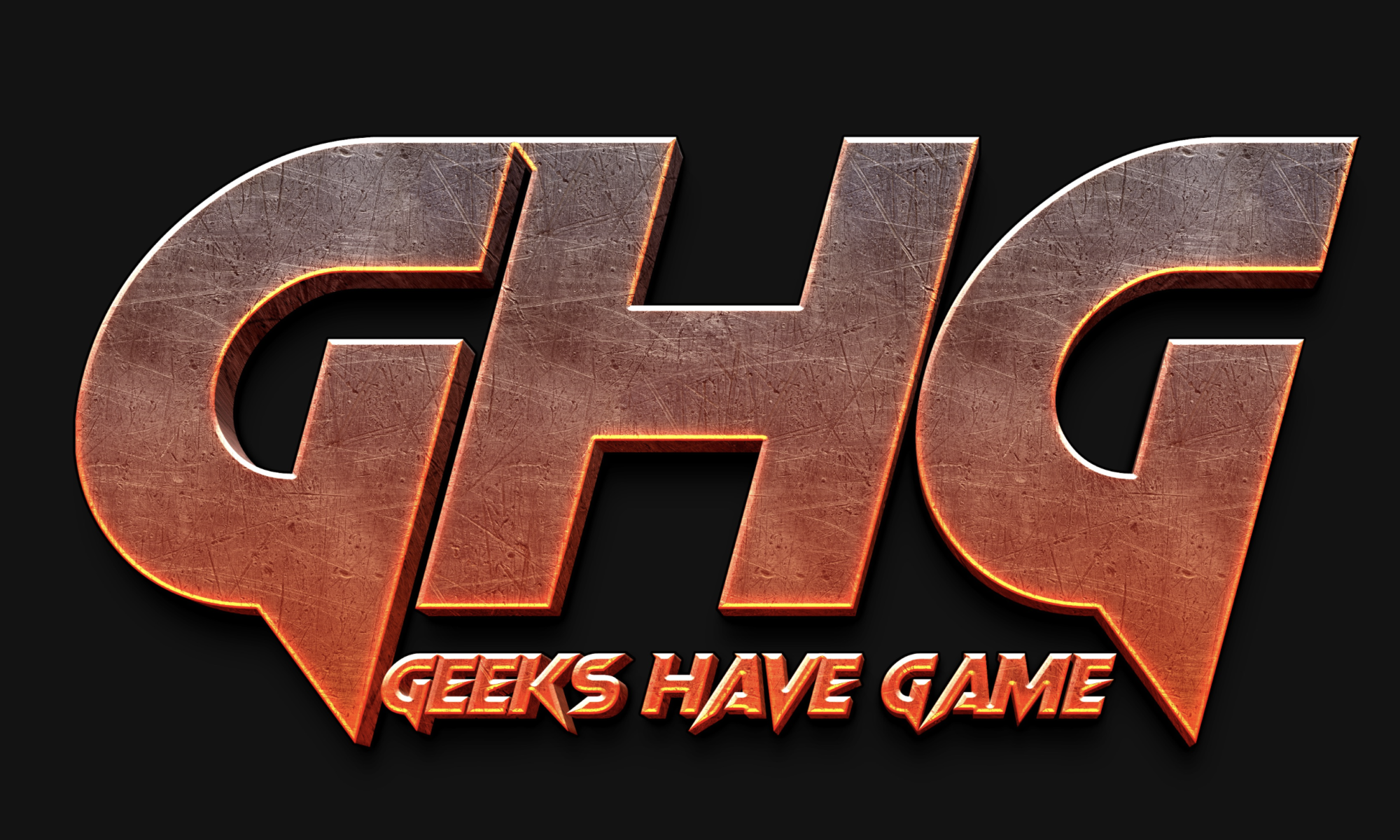
There is a line early on in Jordan Peele‘s sophomore horror effort, Us, in which protagonist Adelaide Wilson (Lupita N’Yongo) tells her daughter, Zora (Shahadi Wright Joseph) who is complaining about being cut off from internet access for a weekend “No internet!” The refrain is brought up twice more (in one instance, Zora hide under the covers of the bed of her parents’ weekend getaway home before we see the screen of her phone light up), and for the entirety of my screening at least, I had no doubt about the subtext of Us: what would happen if internet culture…specifically dark-web culture…had come alive in the real world?
Yes, Us is about the haves-and-have-nots; the upper-echelon-culture being brought down a peg or two by those exploited by society; those who pretend to conform to society in order to advance, but at the cost of their souls — both personal, and social. But throughout, I could not help but feel I was watching members of the dark web thrown, violently and explosively, into the real world. How would, or could, the real world react to such detached trolling should it allow itself into t the real-world? Imagine the comments section of 4chan, 8chan, Facebook, or any online gaming experience manifesting itself into the real-world, in a physical form.
“Do it for the lulz!” brought manifest as a physical entity, one designed to augment the braggadocios skills of the Tyler twins (recall how almost detached they are from their gymnastics skills), and make physical the underlying rage of the online persona (Kitty mocking crying before breaking into a silent, hysterical laughter after watching her mirror husband be chopped up by a boat engine shows just how detached dark web culture has made itself; real emotion is nothing but a distraction, something to mock and exaggerate over. Even pain and rage are insincere when it’s all done for the lulz).

Opening in 1986, in Santa Cruz, California, we see a young Adelaide find herself in the throes of a carnival haunted house off the boardwalk, one which promises to “Reveal your true self!”. There, she experiences a terrifying event — one which we don’t get the details of until later in the film — and we’re thrown headlong into 2019, 33 years later. She and her husband Gabe (Winston Duke) are taking their children out for a relaxing weekend out in their summer home for the beach, with their boat, the Craw Daddy, which needs constant blunt force trauma to keep the engine running, and conversing with their melanoma-challenged family friends (Elizabeth Moss, and Tim Heidecker, as the Tylers). After a day out at the beach, the Wilsons find themselves under siege from literal doppelgangers, and a home-invasion scenario breaks loose, as their mirror — far more extreme — selves work to replace their doubles.
Other, much more literate and observant, sites have commented extensively on the underlying meaning of the Wilson’s doppelgangers (and I highly recommend reading them all. There are no right answers, including here. This film is rife with interpretation); but, I immediately latched onto this view of who these dangerous, violent, nigh-unfeeling creatures present themselves to be. During one of two scenes of exposition, mirror-Adelaide (also played by N’Yongo, who calls herself Red), when asked point-blank who she is, responds, in an almost matter-of-fact way, in her broken, raspy English, “We’re Americans.”

The line elicited a few muffled laughs, but a more vocal, palpable sense of confusion. But the line, coupled with Adelaide’s repeated insistence of “No internet!”, and the trolling-like behavior of the doubles (particularly with the Tylers), hinted at a deeper meaning for Us: what would happen if an online identity…one accustomed to crudity, sarcasm, irony, trolling, doing-it-for-the-lulz…managed to manifest itself online? What would happen if a troll became manifest incarnate?
During a scene in which the Tylers are attacked by their doppelgangers, Tim Heidecker reached down to “help” an injured Kitty (Elizabeth Moss), before, at the last second, shifting to “fix” his hair, mockingly. The fact isn;t lost that Heidecker resembles one of the president’s sons, Eric Trump, a man who seems to revel in trolling and attacking those who cannot fight back online. What horror would occur should a troll be let loose in the real world? Well, this is what would happen, says Us.
And we see the answer to that question over and over. While the Tethereds are doppelgangers of the above-world primes, they are mirrors of those very people. As such, they have the same fallibilities, the same frailties, the same weaknesses, but they’re hidden behind a much more “extreme” definition of strength and fortuity. In the case of the Tethereds, what makes them unique is an inverted version of their real-life strengths (Zora’s double runs fast, as she is a track star, but without the zeal; Gabe’s double is a mindless, inarticulate brute, slow, but strong, and easily outwitted; Jason (Evan Alex) is interested in magic and fire, whereas his double is a pyromaniac with a scarred, burnt chin). In the case of the Wilsons, they understand how their strengths can become weaknesses early on — they’ve been navigating this double world for well on three decades.. putting 5 on it in 2019 is a small price to pay.
Us might not have the overt directness of race and political relations that Get Out had, but it is a stronger movie for that. Yes, it is a movie about race relations; and political affiliations; and class relations; and the haves-and-have-nots.. but I could not help but feel that I was watching something so of its time.. so inherently online.. that I could not manage it. Should you watch Us? Yes. Will you have the same reaction I had? Probably not. And that’s fine. 4/5 Bibles.
-J.l. Caraballo

